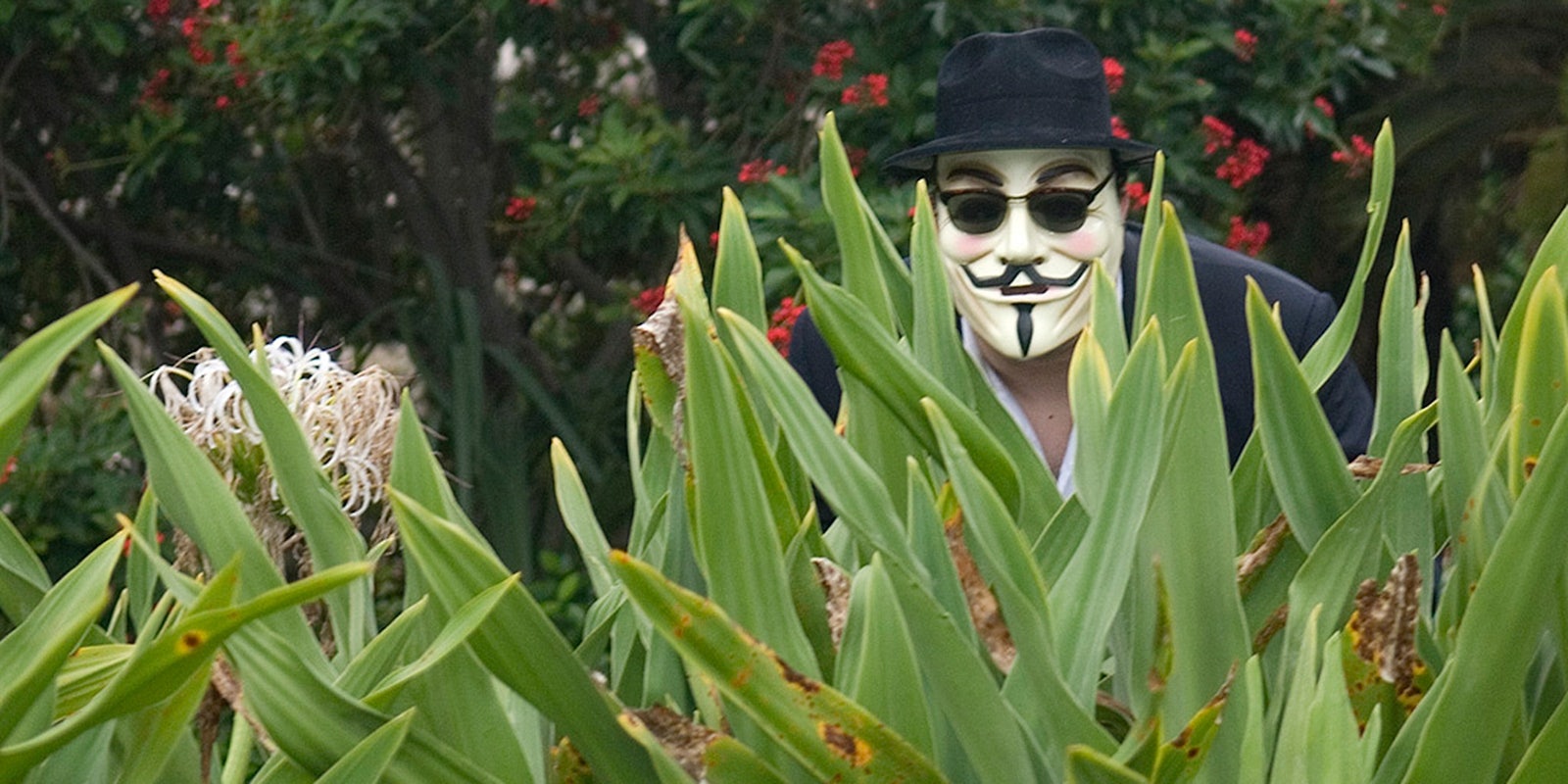Hactivists claiming affiliation with Anonymous have started organizing a campaign in response to a viral video that captures a Texas police officer aggressively handling black teens at a local pool party. It needs to stop before it spreads much further.
For a group without a distinct mission, moral code, or centralized leadership, Anonymous has achieved an astonishing level of power. The loosely organized hacktivist collective was once focused on inter-site pranks and raids between 4chan and eBaum’s World but has earned the constant attention of the federal government as a possible threat and has been responsible for some of the most high-profile cyberattacks of the early 21st century.
McKinney isn’t Steubenville. McKinney isn’t Ferguson.
Recently, Anonymous has helped shine light on serious issues being overlooked by mainstream media, most notably the events of Steubenville, Ohio, in 2013, where two high school students were arrested for the rape of an intoxicated classmate. Through leaked videos and sustained, coordinated efforts, Anonymous catapulted the Steubenville rape case from a local crime story to one deserving of national attention.
Anonymous has taken on worldwide social justice and civil causes with a vigilante furor, targeting (in no particular order) North Korea, ISIS, Russia, rapists, child pornographers, and many more. Their focus on such morally unambiguous targets has made some compare Anonymous to a squadron of superheroes, “an army of Batmen.”
But Anonymous, due to the very thing that makes it so powerful—its lack of structure and anonymity—is prone to rather disastrous levels of error. The group’s chief tactic of doxing—releasing private details of public individuals against their will—has often driven them too implicate the wrong person in serious crimes. It’s this loose-cannon status that should have people raising eyebrows about Anonymous’ proposed involvement in the investigation surrounding this past weekend’s events in McKinney, Texas.
Anonymous, due to the very thing that makes it so powerful—its lack of structure and anonymity—is prone to rather disastrous levels of error.
Shortly after #McKinney began trending on Twitter, several accounts claiming to be associated with Anonymous sought out the name of an ununiformed man in the video of the events who appears to be assisting police in restraining the teenagers, even offering a $200 bounty for his name or identity. @OpMcKinney has been very active, telling followers to flood the phone lines of the McKinney police and urge them to fire the officer who pulled the teen girl by her leg as well as pulled out his gun, Officer Eric Casebolt. Depending on your perspective, such efforts can be seen as either heroic or exploitative.
https://twitter.com/OpMcKinney/status/607822462844313600
McKinney isn’t Steubenville. McKinney isn’t Ferguson. While the underlying issues of racism and police brutality are present in both of the latter instances, the media’s attention is already rapt on this Dallas suburb. The aforementioned video of the incident spread across social media shortly after it was uploaded to YouTube by witness Brandon Brooks. In the last 24 hours, McKinney has become a regular topic on cable news and has inspired thinkpiece after thinkpiece across the Internet. Eric Casebolt has been put on “administrative leave” by McKinney police and the incident is under investigation. The case even has shadows of the case of Officer Michael Slager in North Carolina, who was just indicted by a grand jury for the death of Walter Scott. That incident was also kept from national attention until the horrifying video of Scott’s death, much like the video of the McKinney pool party raid, spread across the Internet and into the mainstream media.
So if the officer accused of wrongdoing is under investigation and the pressure of the national media is now on the department at hand, what is left for Anonymous to do?
In large part, Anonymous tries to fill in the gaps where the system is not working. But all parts of this incident, from the police department to the witnesses to the media, are responding with appropriate gravity and vigor to right the evident wrongs of these abuses. At best, Anonymous will get in the way of officials attempting to investigate Officer Casebolt and others who might have been involved. At worst, they could implicate the wrong officers and citizens.
So if the officer accused of wrongdoing is under investigation and the pressure of the national media is now on the department at hand, what is left for Anonymous to do?
It’s certainly not a circumstance that would be new for Anonymous. After the death of Michael Brown in Ferguson, Missouri, members of Anonymous released the name of a Ferguson police officer they believed to be Brown’s shooter. They were quite wrong. Back in 2012, Anonymous members wrongly accused a Canadian man of attempting to seduce Amanda Todd, the seventh grader who took her own life after being cyberbullied. These are just a handful of instances Anonymous has found itself less that storied vigilante collective and more an irresponsible group of well-intentioned fools, but the risk is apparent.
We shouldn’t wash our hands of McKinney simply because an investigation has started, and Anonymous has proven itself adept and useful for revealing information the public deserves to know. But for now, the system deserves the opportunity to work the way it’s intended to.
Correction: An earlier version of this article incorrectly stated the location of the Steubenville rape incident. The town is in Ohio. We regret the error.
Gillian Branstetter is a social commentator with a focus on the intersection of technology, security, and politics. Her work has appeared in the Washington Post, Business Insider, Salon, the Week, and xoJane. She attended Pennsylvania State University. Follow her on Twitter @GillBranstetter.
Photo via Anonymous9000/Flickr (CC BY 2.0)


